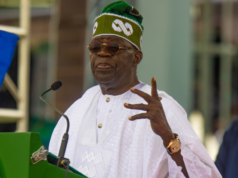On July 4, 2024, an exit poll projected on BBC Broadcasting House in London indicated that the Labour Party, led by Keir Starmer, is set to win 410 seats in Britain’s general election.
As vote counting continued nationwide, the official results were expected from late Thursday into Friday, positioning Starmer to succeed Rishi Sunak as prime minister.
This anticipated landslide victory for Labour would end 14 years of Conservative rule, which has been characterized by financial austerity, Brexit divisions, and scandals.
 Advertorial
Advertorial
The exit poll suggested that the Conservatives would secure only 131 seats in the 650-seat House of Commons, while the Liberal Democrats were forecasted to win 61 seats, and Nigel Farage’s Reform UK was expected to obtain 13 seats.
Under the UK’s first-past-the-post electoral system, a party needs 326 seats to achieve a majority in parliament.
With Labour poised to surpass this threshold, Keir Starmer is likely to be invited by King Charles III to form a government.
 Advertorial
Advertorial
If confirmed, this result would mark a significant shift in British politics, contrasting with the rightward trends in countries like France and the United States.
Starmer, a former human rights lawyer and chief public prosecutor, became Labour leader in 2020, succeeding Jeremy Corbyn.
He has since steered the party towards the centre, making it more electable by addressing internal ideological conflicts and issues of anti-Semitism.

Labour’s substantial lead in opinion polls over the past two years suggested a high likelihood of their victory.
Starmer has promised significant reforms, aiming to address economic stagnation, underfunded public services, and financial pressures on households.
He also pledges to restore political integrity after a period marked by five Conservative prime ministers in 14 years.
Starmer’s initial days in office will be busy, including representing the UK at the NATO conference in Washington next week and hosting a summit with European leaders later in the month.

His agenda reflects his commitment to a “decade of national renewal,” addressing the substantial challenges facing the country.

















